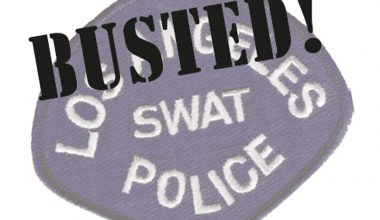I recently finished a court case involving an off-duty Officer Involved Shooting.
The officer was in a restaurant with his young daughter when an agitated man entered. He asked to utilize the restroom, which required tokens. He returned several minutes later, even more agitated, and began swearing at the cashier. He then exited the location and went out of sight.
At some point, the officer also exited the location to retrieve items from his parked vehicle, while allowing his daughter to remain in the restaurant. The agitated individual, who had exited first, rapidly approached the officer from behind and suddenly struck the officer forcefully in the side of the head. He proceeded to violently strike the officer a number of times while forcing him up against the front glass window of the restaurant. Numerous witnesses observed the one-sided altercation.
The officer was unsuccessful in defending himself and identified himself as a police officer as the attack continued. According to the officer’s statements, he thought he may have been stabbed and was about to lose the fight at any moment. Well into the altercation, he drew his pistol and discharged a single round into the suspect, who then ceased his attack, stepped back and fell to the ground. He expired on scene.
Off-duty carry is a privilege that is afforded to police officers. The opposing “expert” opined that the officer had no right to exercise his right to self-defense as a police officer because he was operating outside his jurisdiction. As a point of fact, the right to concealed carry extends outside one’s operational jurisdiction. The opposing expert’s argument simply didn’t hold water.
In this regard, there is a force multiplier effect when police officers are armed off duty and may be situated in locations where on-duty police officers are not. The opposing “expert” also opined that the officer should have interceded at the outset in the restaurant. As no crime had been committed other than abusive language and a lack of social graces on behalf of the suspect, this argument hardly washes. If no crime has been committed, there is no need for action on anyone’s behalf.
Had the situation escalated due to the officer’s initial intercession, the “expert” would have held him liable for this as well. Damned if you do, damned if you don’t.
Many police departments reserve the right to defend or not defend your actions when off duty. If they feel you acted improperly, you are up the proverbial creek. On large departments, this can be problematic, because the powers that be may change constantly and therefore you may or may not be out on a limb when you act while off duty.
The decision to take action when off duty must always be weighed carefully. The severity of the offense and the resources at hand will always be mitigating factors. The decision not to act initially in this instance was the correct one. There is every chance that the above situation may have escalated sooner, which might then make a case for the officer having precipitated the shooting and he would be found liable for improper tactics.
Off duty means you are vulnerable on a number of different fronts. The ability to have immediate back-up is non-existent, as are radio communications and a host of other factors. We have had a number of off-duty shootings on the LAPD, some of which have gone well and some that have not.
On the other hand, if there is any doubt, simply remain the objective and vigilant witness and protect yourself. The unpredictability of an individual’s actions requires that you remain constantly aware of your environment. This does not mean that you have to flash bang your way to the popcorn stand at the theater, but only that you are aware of your surroundings. Practicing with whatever weapon you carry and in the manner in which you carry will always be beneficial.
A good rule of thumb to follow is to intercede only when it is readily apparent that human life is endangered. Offduty carry brings with it an inherent responsibility to know when and when not to act.




